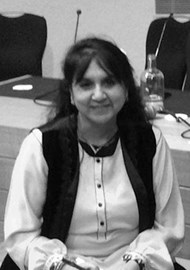This study was aimed to assess the role of sex hormones in male and female patients with central serous chorioretinopathy (CSC), a disease with a pronounced male predilection. Two hundred and six patients, 183 males (mean age 52, median 52, range 30-88 years) and 23 female patients (mean age 59, median 58, range 45-79 years) with active chronic CSC participated in the study. The control groups consisted of 29 healthy males (mean age 48, median 47, range 31-69 years) and 30 healthy females (mean age 47, median 46, range 34-67 years). Serum testosterone, estradiol, albumin and sex hormone-binding globulin levels (SHBG) were determined using immunoassays. The free fraction of testosterone and the free testosterone / estradiol ratio were calculated. The results showed no differences in the levels of total testosterone and estradiol between CSC patients and healthy controls. No evidence of a disturbance in sex hormone levels in males with CSC was found. However, albumin levels were found to be lower in male CSC patients compared to controls (controls 47.8 g/L, patients 46.0 g/L, adj. p = 0.006). In females with CSC, SHBG levels were found to be lower (controls 94.2 nmol/L, CSC patients 50.4 nmol/L, adj. p = 0.001), together with a higher free testosterone / estradiol ratio (controls 0.06, patients 0.18, adj. p = 0.018). The conclusions have opened the doors for further in -depth research into why physiological levels of male sex hormones are permissive for CSC and the possible presence of androgen receptor expression in the sclera, a tissue involved in the venous outflow from the choroid. In addition, the finding regarding the lower levels of SHBG in females with CSC, which is currently speculated to have a protective role (by the binding of androgens and preventing the bioavailability of testosterone), may become the subject of further evaluative studies. Integration of patient-specific research using induced pluripotent stem cells can be of value as it may reveal intrinsic cellular signalling pathways in CSC (e.g. “hypersensitivity” to steroids) which may in turn help to explain the complex pathophysiology of this disease.
Sex hormones in males and females with central serous chorioretinopathy
Reviewed by Sofia Rokerya
Sex hormones in males and females with active central serous chorioretinopathy.
CONTRIBUTOR
Sofia Rokerya
MBBS MRCOphth FRCSI, King's College University Hospital, UK.
View Full Profile



